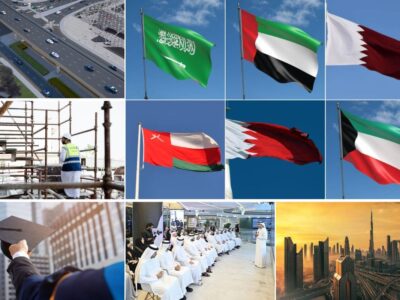The United Arab Emirates is the highest ranking economy in the Middle East and North Africa region when it comes to ease of doing business, according to the World Bank.
In the latest report, the UAE was ranked 11th globally (up from 21st last year), with the World Bank highlighting the country’s efforts to make it easier to start a business by improving online registration, eliminating all costs for commercial and industrial connections of up to 150 kilo-Volt-Amperes (kVA), making registering property easier by increasing the transparency of the land administration system, and strengthening access to credit.
Training and efficiency in the judicial system was also identified as a key marker.
The report said: “Training formed a central part of the United Arab Emirates’ strategy to modernise its judiciary and has been instrumental in the successful creation of specialised commercial courts, the introduction of electronic case management systems and the implementation of a new insolvency regime.”
Reforms
The World Bank studies reforms in 10 areas of business activity in 190 economies, including issues such as construction permits, getting electricity and paying taxes.
Meanwhile, Saudi Arabia is fast improving (ranked number 92), with the ease of doing business in the kingdom boosted by key reforms implemented by King Salman bin Abdulaziz Al Saud and measures taken as part of the country’s Vision 2030 strategy.
The kingdom was commended for improving the reliability of the electricity supply, protecting minority investors by providing clear rules for the liability of directors and increasing the role of shareholders in major decisions, making exporting and importing easier by launching a new electronic single window and extending the hours of operation of customs at the Jeddah port, and making enforcing contracts easier with the introduction of a new e-system.
Bahrain was also among a selection of the most improved economies (ranking number 62), which was also highlighted for protecting minority investors by increasing shareholders’ rights and role in major decisions, clarifying ownership and control structures and requiring greater corporate transparency.
The country also found favourable results in its trading across borders by deploying portal scanners and upgrading the single window system, reducing the time needed to import.
Bahrain was followed on the list of improving economies by Kuwait (ranked 97), which was also highlighted for protecting minority investors by requiring an independent review of related-party transactions and clarifying ownership and control structures; and also for simplifying the business start-up process by removing the paid-in minimum capital requirement.
New Zealand kept top spot in the annual report and Singapore held second place. Hong Kong move up a notch to third, trading places with Denmark, while South Korea stayed in fifth. The US moved up two spots to number six, knocking Georgia back to seventh, while the UK, Norway and Sweden rounded out the top 10.
Indian Prime Minister Narendra Modi’s years-long push to make life easier for companies showed more progress as the country’s ranking rose to 63 from 130 in 2016. The report cited a “remarkable reform effort” and said the changes are particularly commendable given the size of the economy.The six nations at the bottom of the list stayed the same from last year, South Sudan, Libya, Yemen, Venezuela, Eritrea and Somalia.





